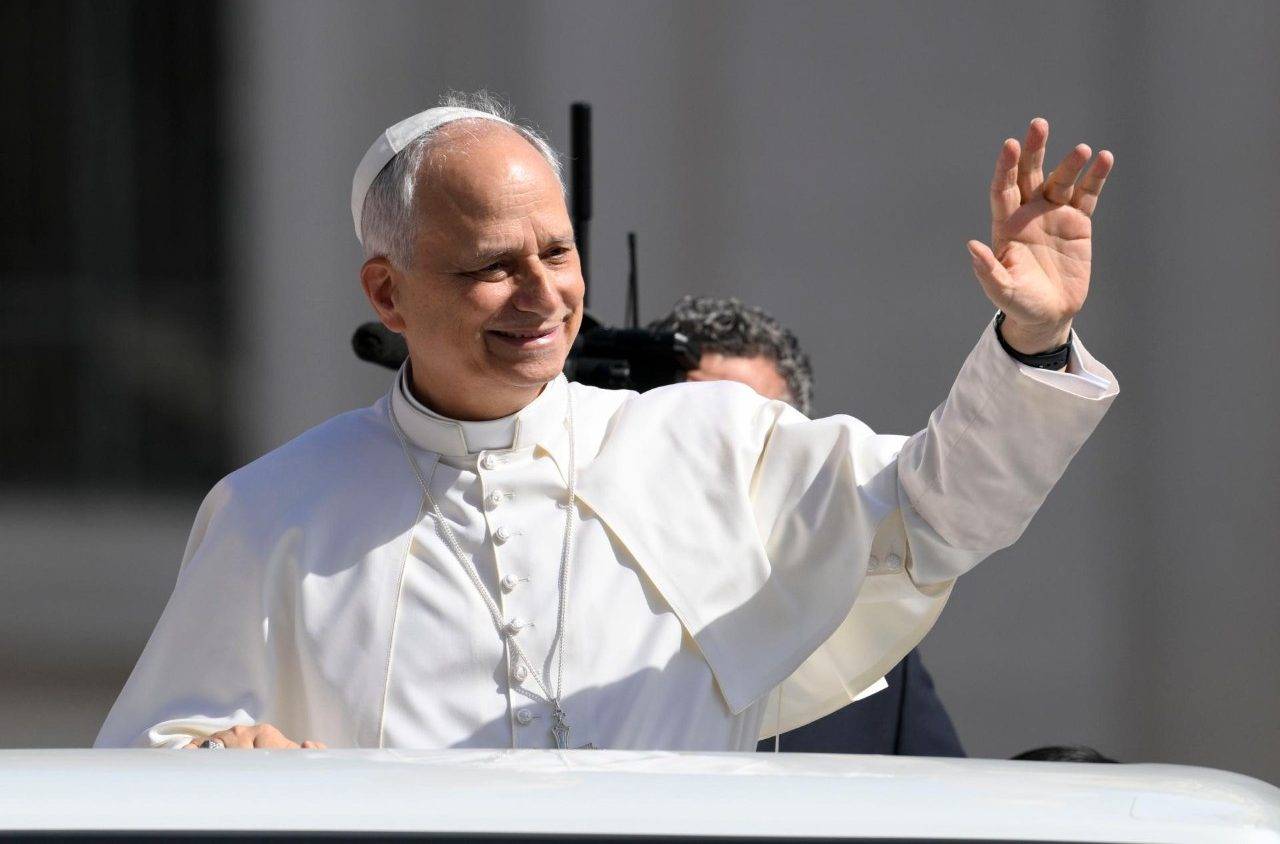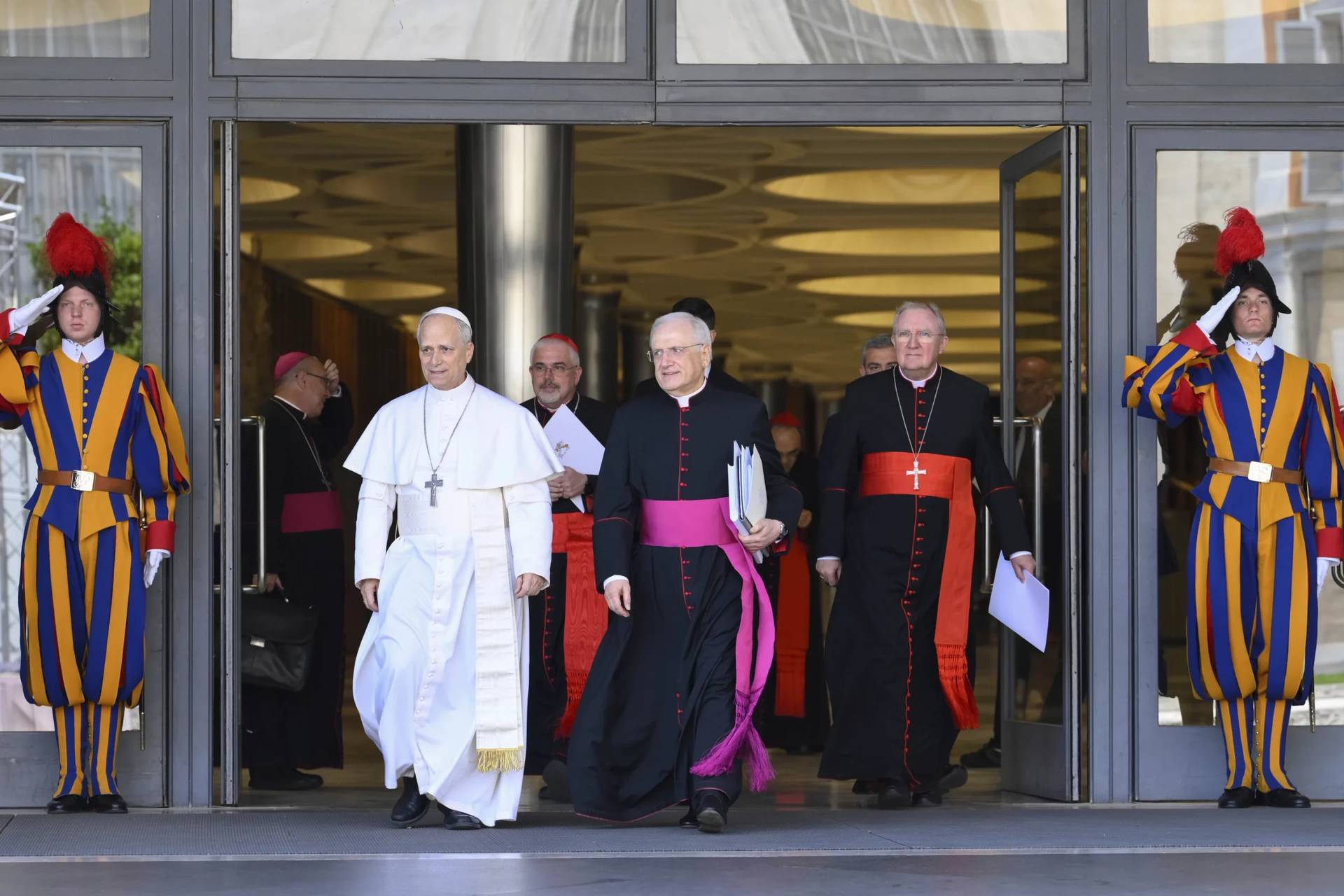SANTIAGO, Chile – Well before Pope Francis arrived here Monday night, it was clear that his Jan. 15-18 visit to Chile would be trying, in large part because of fallout from clerical sexual abuse scandals that have badly frayed both the Church’s public image and its internal morale.
As Francis was making his way from Rome to the Chilean capital on Monday, I spent over an hour with the bishop at the center of that storm, Juan Barros Madrid, whom Francis appointed to head the diocese of Osorno in March 2015. We were joined by the bishop of Talca, Horacio Valenzuela, who, along with Barros, is accused by three victims of witnessing their abuse and covering it up.
While both acknowledged the devastating impact of the abuse itself, both also firmly denied any role in a cover-up.
The controversy centers on revelations in the heart of what was for years one of the Chilean capital’s most dynamic and successful Catholic centers, Father Fernando Karadima’s “El Bosque” parish. Both Bishop Juan Barros Madrid, whom Francis appointed to head the diocese of Osorno in March 2015, and the Bishop of Talca, Horacio Valenzuela, have been accused by three of Karadima’s victims of knowing about their suffering but turning a blind eye, and Barros’s appointment in particular has caused a national firestorm.
In a joint statement, the victims described Barros as “a man we know and have accused of witnessing abuse, our abuse, and therefore encouraging the perverse dynamics of power.”
Both bishops insisted to me, as they have all along, that the claims are simply lies, and that they were wholly unaware of Karadima’s sexual abuses until the accusations erupted in 2010. The news, they said, came as a profound shock to them.
Although there were aspects of Karadima’s behavior – he was increasingly obsessed with money, displayed authoritarian, even cruel, tendencies, and latterly became foul-mouthed – both bishops are emphatic that they never saw sexual abuse, let alone covered it up.
So far, no evidence has ever been advanced by the victims to prove otherwise, nor has any claim been verified by them in either a civil or canonical case.
Barros and Valenzuela also point to the oddity that, despite dozens of men being involved in the comings and goings at the time in El Bosque – it was a cauldron of vocations, which generated 40 priests and 5 bishops – it is only those who later became bishops that the victims have accused of covering up.
Yet because the abuse by Karadima is not in doubt, the assumption of national and international media is that the victims must be also telling the truth about Barros and two other bishops, including Valenzuela. In fact, it is hard to find anyone in Santiago – in the Church or outside it – who is prepared to believe Barros’s innocence.
So great was the pressure generated by the accusations that when the Congregation of Bishops decided, in late 2014, to appoint Barros – who had been for the previous decade bishop to the armed forces – Chile’s leading bishops, including Ezzati, strenuously opposed the move, arguing to Francis that it would be a disaster for the Church.
But Francis, convinced of Barros’s innocence — the pope described to Barros the accusations as self-evidently inconsistent — pressed ahead with the appointment which Barros prepared for in January-February 2015 with a 30-day Jesuit retreat in Spain, meeting afterwards with Francis in Rome.
Against a background of fury at the decision, Barros offered at that meeting to the pope to stand down, but Francis insisted he proceed. Barros told me that throughout he has sought to be docile to the pope’s will, trusting that Francis was the best judge.
Many of Chile’s leading bishops – including not just Ezzati, but the president of the bishops’ conference – were conspicuously absent from Barros’s chaotic installation in Osorno on March 21, 2015, when angry, at times violent, protesters drowned out the Mass. (While he had expected demonstrators, Barros said nothing prepared him for the violence and hatred on show that day).
Francis’s dogged determination to support Barros against this tide from both Church and society must be counted as one of the boldest – or, perhaps, most foolhardy – decisions of his pontificate. There was a price to pay on his own anti-abuse commission, whose two survivor members, Peter Saunders and Marie Collins, objected strongly that the voices of Karadima’s victims were being “ignored.”
Among some of Francis’s strongest critics is a group of laypeople and priests in Osorno, who describe the imposition of Barros as an authoritarian act that rides roughshod over the feelings of the local Church.
The pope’s frustration with those voices was laid bare in an infamous outburst in May 2015 in St. Peter’s Square, which was captured on an iPad. When a group of Chilean pilgrims told the pope at a Wednesday general audience that Osorno was suffering from his decision to appoint Barros, Francis said the diocese was “letting its head be filled with what politicians say, judging a bishop without proof.”
Francis told them to “think with your heads and do not be led by the lefties who orchestrated this whole thing,” adding that Osorno was suffering because “it does not open its heart to what God says, and instead gets carried away by all this foolishness.”
The words might have been ill-judged, and they are endlessly repeated here in Chilean media, which describes them as an “insult.” But there is no doubt that they reflect Francis’s reading of the movement, and it’s a fact that among critics of the appointment are left-wing militants and that leaders of Osorno’s anti-Barros “Organization of Lay People” belong to socialist groupings.
In that context, Francis’s language on the sexual abuse scandals on Tuesday, both his apology delivered in an address to civil authorities and his meditation with a group of priests and religious, take on a particular significance that the wider world would likely miss.
Having issued a thoroughgoing and heartfelt apology to Chilean society and the victims for the sins and crimes of abusers, Francis could afford in his remarks to priests and religious to focus on the damage to the internal life of the Church without being accused of putting the needs of the institution first.
The pope offered an image of that desolation in the dismay and confusion in Jesus’ disciples following the crucifixion. Such desolation, he suggested, brings a series of temptations – above all a self-focus, a turning-inwards, a “dwelling on our own unhappiness.”
Francis highlighted the pain and suffering of the wider ecclesial community – the anger and suspicion directed at the Church borne by priests and nuns insulted in the street – but also what he called “the doubt, fear or a lack of confidence” that such hostility has brought.
At the same time, the Church has been coping with rapid social change driven by technology and globalization accompanied by progressive mindsets that have shattered what was once a deeply conservative, Catholic culture.
Such “new and different cultural expressions,” as he described them, can produce the temptation of “becoming closed, isolating ourselves, and defending our way of seeing things, which then turn out to be nothing more than fine monologues.”
As result, the pope added, “we can shut our eyes to the pastoral challenges” and forget that “the Gospel is a journey of conversion, not just for ‘others’ but for ourselves as well.”
Although he nowhere referred to scapegoating, Francis’s meditation could be read as being addressed, in part, to those tempted in a time of trauma into sacrificing innocent people in order to protect the Church’s institutional reputation.
“I am concerned when I see communities more worried about their image, about occupying spaces, about appearances and publicity, than about going out to touch the suffering of our faithful people,” Francis said pointedly.
The objective of his meditation was to invite Chile’s Church to embrace its failure and woundedness as an opportunity both to be renewed by Christ and to be more open to others also wounded.
In a striking phrase, he plotted a path of conversion and redemption, from “being a Church of the unhappy and disheartened to a Church that serves all those people who are unhappy and disheartened in our midst.”
In Osorno, divisions remain, but on the whole the diocese is getting back to normal, Barros told me. There are a couple of parishes where he is not welcome, and a few priests out of the 35 who continue to make it clear he shouldn’t be there. But the protests are diminishing, Barros said, and liturgical and pastoral life is getting back to normal.
The same is true, he adds, of the bishops, who have over time come to accept the pope’s decision.
Barros, who was Jesuit-educated, marvels at the pope’s capacity for discerning spirits, for facing down the temptations, and for sticking to what is right in the face of formidable criticism.
And it may be paying off.
Yesterday could be seen as the beginning of his rehabilitation. He was present, to the fury of Karadima’s victims, at the Mass in O’Higgins park, and was embraced along with his brother bishops by Francis in the cathedral. He also gave interviews – something he has studiously avoided until now.
“What sort of a Church is that you love?” was the question Francis put yesterday to the clergy and religious. “Do you love this wounded Church that encounters life in the wounds of Jesus?”












